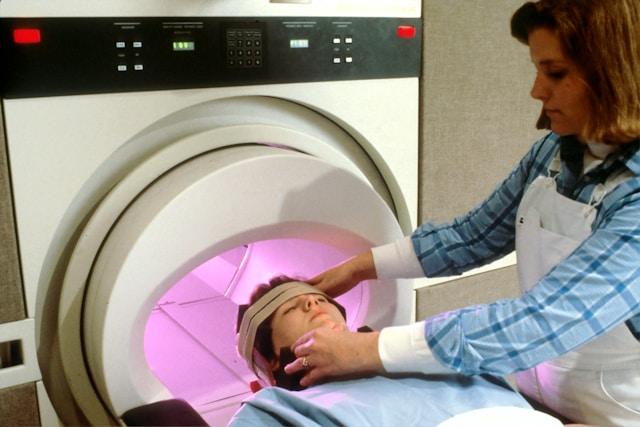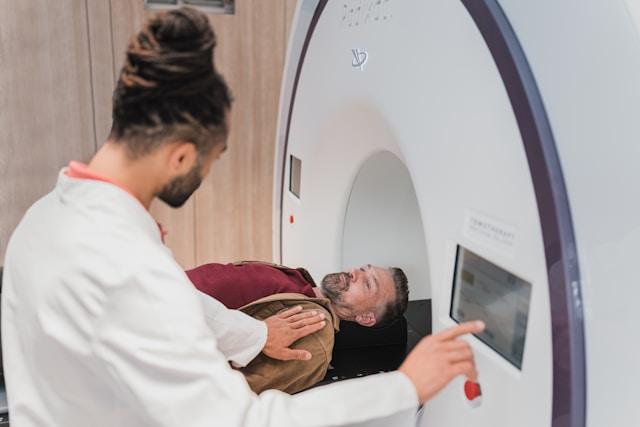Nerves extend from your brain and spinal cord, sending important messages throughout your body. If you have a pinched nerve (nerve compression) your body may send you warning signals such as pain. Don’t ignore these warning signals.
Damage from a pinched nerve may be minor or severe. It may cause temporary or long-lasting problems. The earlier you get a diagnosis and treatment for nerve compression, the more quickly you’ll find relief.
In some cases, you can’t reverse the damage from a pinched nerve. But treatment usually relieves pain and other symptoms.
Causes of Pinched Nerves
A pinched nerve occurs when there is “compression” (pressure) on a nerve.
The pressure may be the result of repetitive motions. Or it may happen from holding your body in one position for long periods, such as keeping elbows bent while sleeping.
Nerves are most vulnerable at places in your body where they travel through narrow spaces but have little soft tissue to protect them. Nerve compression often occurs when the nerve is pressed between tissues such as:
Ligament
Tendon
Bone
For example, inflammation or pressure on a nerve root exiting the spine may cause neck or low back pain. It may also cause pain to radiate from the neck into the shoulder and arm (cervical radiculopathy). Or pain may radiate into the leg and foot (lumbar radiculopathy or sciatic nerve pain).
These symptoms may result from changes that develop in the spine’s discs and bones. For example, if a disc weakens or tears — known as a herniated disc — pressure can get put on a spinal nerve.
Nerve compression in your neck or arm may also cause symptoms in areas such as your:
Elbow
Hand
Wrist
Fingers
This can lead to conditions such as:
Peripheral neuropathy
Tennis elbow
If nerve compression lasts a long time, a protective barrier around the nerve may break down. Fluid may build up, which may cause:
Swelling
Extra pressure
Scarring
The scarring may interfere with the nerve’s function.
With nerve compression, sometimes pain may be your only symptom. Or you may have other symptoms without pain.
These are some of the more common symptoms of compressed nerves:
Pain in the area of compression, such as the neck or low back
Radiating pain, such as sciatica or radicular pain
“Pins and needles” or a burning sensation
Weakness, especially with certain activities
Sometimes symptoms worsen when you try certain movements, such as turning your head or straining your neck.
How long it takes for symptoms to end can vary from person to person. Treatment varies, depending on the severity and cause of the nerve compression.
You may find that you benefit greatly from simply resting the injured area and by avoiding any activities that tend to worsen your symptoms. In many cases, that’s all you need to do.
If symptoms persist or pain is severe, see your doctor. You may need one or more types of treatment to shrink swollen tissue around the nerve.
In more severe cases, it may be necessary to remove material that’s pressing on a nerve, such as:
Scar tissue
Disc material
Pieces of bone
Treatment may include:
NSAIDs. Nonsteroidal anti-inflammatory drugs (NSAIDs) such as aspirin, ibuprofen, or naproxen may reduce swelling.
Oral corticosteroids. These are used to reduce swelling and pain.
Narcotics. These are used for brief periods to reduce severe pain.
Steroid injections. These injections may reduce swelling and allow inflamed nerves to recover.
Physical therapy. This will help stretch and strengthen muscles.
Splint. A splint or soft collar limits motion and allows muscles to rest for brief periods.
Surgery. Surgery may be needed for more severe problems that don’t respond to other types of treatment.
Contact Neuropax Clinic for more information, and to set up an appointment.





















